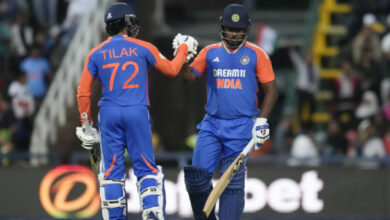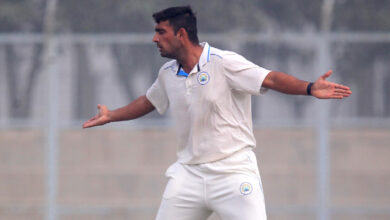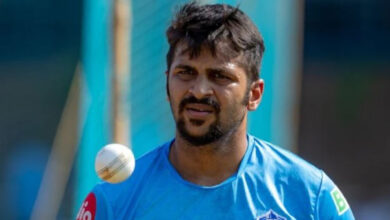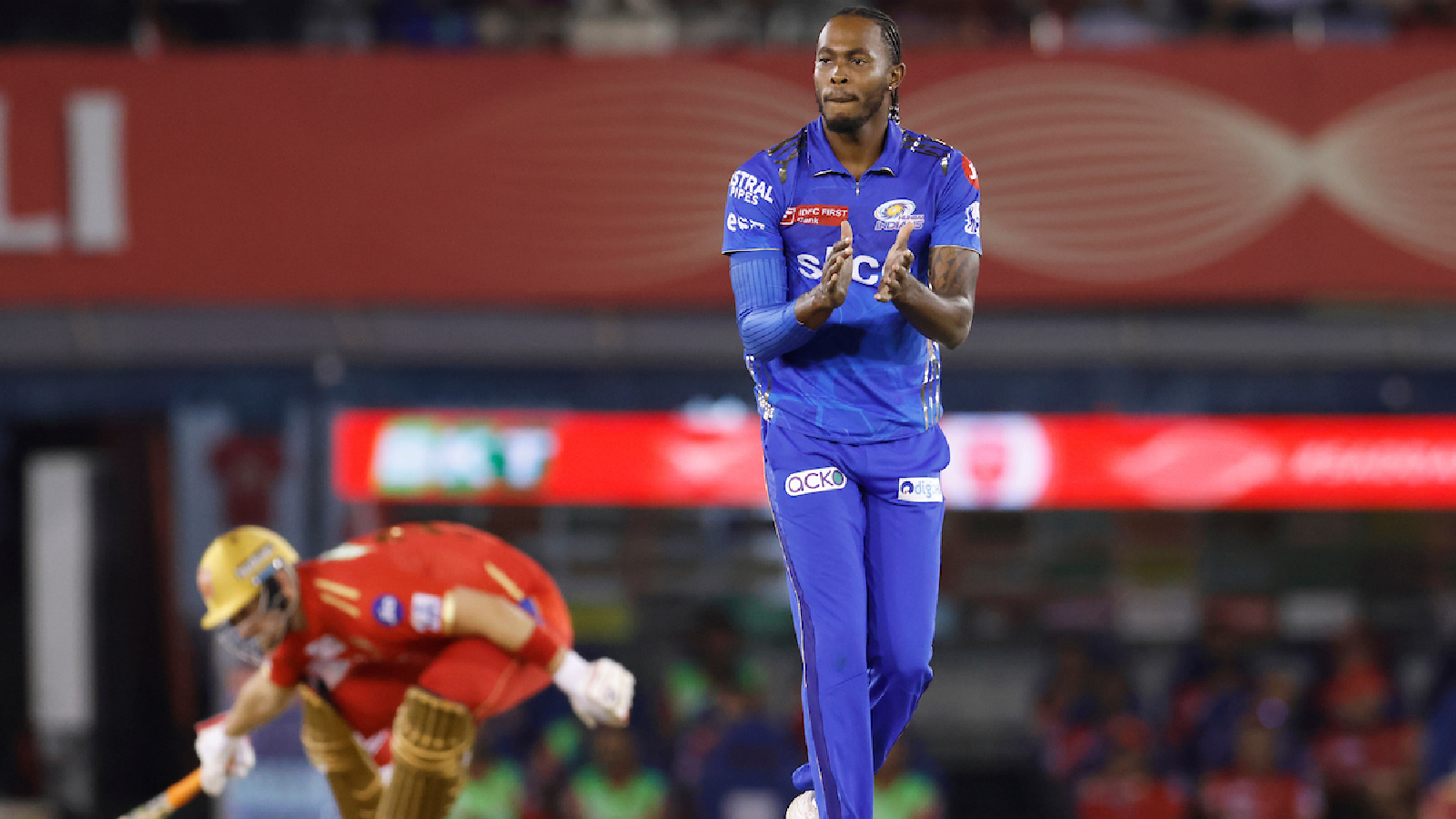Why it’s not wise to write-off Novak Djokovic | Tennis News

Stadiums are kangaroo courts, infamous for their hasty judgments. Sports fans are instant opinion-makers. They are also the judge and jury. So, last weekend at the Australian Open, after his loss to 22-year-old Jannik Sinner in the semifinal, the verdict on Novak Djokovic was diligently passed. The greatest ever tennis player was past his prime at 36; the 20-something Gen-Next had finally caught up and it was curtains for the Djokovic era.The undisputed World No.1 would call the face-off with Sinner his “worst Grand Slam match ever.” Statics too indicated so. The man known to play a flawless percentage game had 54 unforced errors. One of the best returners in the hory of the sport didn’t have a single break point on Sinner’s serve. It was the darkest day of Djokovic’s sparkling career.
Thankfully, there was the ageless champion of her time, Martina Navratilova, to put a rational frame of perspective around the rattled Djokovic statement after the shocking loss. “When you get older, the bad days get worse,” she would say. And be it the GOAT or a 9-to-5 mortal, who doesn’t have a bad day at the workplace? Having witnessed many false dawns and dusks, Navratilova wasn’t jumping the gun. She was normalising tennis’ latest big upset, a regular feature at Grand Slams over the years.
Djokovic himself had to confront the “age question”. At press conferences, reporters are generally guarded when asking questions of superstar athletes in their mid-30s who have been annihilated younger opponents. At Melbourne, towards the end of the media interaction, an Australian reporter, not one on the tennis beat, dared to ask the Serb, father of a nine-year-old son, if age was catching up. Scribes taking notes looked up to check Djokovic’s expression. Would he fume, would there be a meltdown or just a smart snub? They were surprised. Djokovic would give a headline-making answer. “I hope not, but I don’t know, time will tell,” he said.
Was this an acknowledgement of the looming shadow of Father Time falling on him or another of those clever Djokovic mind games? The ultra-competitive champion is known to take well-timed injury breaks during crunch games. Many times in his career, especially when the opponent is running away with a match, Djokovic would start to grimace, complain to the chair umpire about some mystery niggle or strain. This would end up giving his rivals a false sense of superiority. They would no longer be in the present. They would prematurely start dreaming of an easy win, bouquets and silverware.
Invariably, after the break, there would be a change in momentum. The sly Serb, magically cured and running around like a gazelle, would go on to seal the match.
In a sport of a million vagaries, it is tough to foretell what fate awaits Djokovic, but the smart money will always be on the hardened survivor weathering another storm. It was just last year that Carlos Alcaraz, 19, had blown him off the Wimbledon turf. Even then, the stands had passed the “beginning of the end” judgement. Djokovic, on that day, gracefully accepted the loss, and praised the young champion — but away from the public eye, he switched to beast mode.
The undisputed World No.1 would call the face-off with Sinner his “worst Grand Slam match ever”. (Illustration CR Sasikumar)
Months later, his coach, the great Goran Ivanisevic, was asked about Djokovic’s mood at the first training session after the Alcaraz loss. “Was he cranky?” a reporter had queried. Ivanisevic let out a chuckle to say, “At training, he is always cranky”. In the past, Djokovic has said that to remain toe-to-toe with the youngsters pursuing him, he has to reinvent his game every month, every week. Within months of losing to Alcaraz, Djokovic would beat him at the Cincinnati Masters. He would tear his shirt, roar like a lion, sounding out to the world that the Djokovic story was far from over. As you read this, in some part of the world, a cranky Djokovic and the wise old Ivanisevic would be plotting Sinner’s fall.
While it will be too early and unwise to see him as a player in decline, there have been some subtle changes in him. He isn’t the Djokovic of old when not hitting the tennis ball. Back in the day, in the Roger Federer-Rafael Nadal era, he was the “unloved” and “uncheered” No.3 of the Big 3. He was bitter, he was driven, he desperately wanted to knock them down from the podium and beat them in the horic race for the Slams.
He did all that and after achieving all those lofty goals, Djokovic has looked relaxed. He no longer smashes racquets or picks fights with umpires. “I have tried not to be too harsh with myself because I did earlier in my career. I was my biggest critic,” he said at the end of last year.
These days, he is friends with his young rivals and as an ageing champion, he is also the darling of the crowds. Maybe, the Australian Open loss will reawaken him, fuel that old anger, make him feel about Sinner and Alcaraz the way he did about Federer and Nadal.
It wouldn’t be a tough tweak to do for the player who from his very first day on the tennis court has believed in being prepared for every eventuality. Growing up in Belgrade in the 1990s, the erstwhile Yugoslavia’s decade of violent disintegration, ethnic cleansing, deaths and mass migration; young Novak pursued his passion while disregarding the screaming NATO fighter planes overhead. Every day, his childhood coach Jelena Gencic would second-guess the bombing target to decide which courts his favourite student would train on.
She once shared a charming story about the six-year-old Djokovic’s initiation into tennis. One morning, Gencic spotted a young boy intently observing other kids playing from the other side of the fence skirting the court. She told him that if he wished to play, he could join them in the afternoon. Djokovic did return, lugging a heavy kit bag over his ba shoulders.
Gencic recalled that on his first day on court, Djokovic was carrying a racquet, towel, water bottle, extra T-shirt, wrband, cap and one banana.
“Did your mother prepare your bag?” she asked. The boy with the angelic face replied almost angrily, “No, I am playing tennis.” At 36, he is still playing tennis like no one before him. And only the brave or the flippant can dare to write him off.
sandeep.dwivedi@expressindia.com







